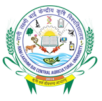Introduction
College of Fisheries
Globally, as well as in India, the fisheries sector has been making significantccontributions to meeting food and nutritional security goals. India currently occupies 2 nd and 3 rd positions in global aquaculture and overall fish production. The states of Uttar Pradesh and Madhya Pradesh have great potential for fish farming. These states also encompass a geographically and culturally distinct Bundelkhand region. Bundelkhand, with an area of ~69,000 square km, comprises 7 districts (Lalitpur, Jhansi, Jalaun, Hamirpur, Mahoba, Banda, and Chitrakoot) of Uttar Pradesh and 7 districts (Chhatarpur, Tikamgarh, Damoh, Sagar, Datia,Niwari and Panna) of Madhya Pradesh. The region has diverse aquatic resources, including rivers, reservoirs, large tanks, community/village ponds and private ponds. Four major rivers, namely Yamuna, Betwa, Ken, Dhasan and several other rivers (Paisuni, Ganara, Pahuj, Sonar, Bina and Jamni) flow through the Bundelkhand region. Since the 1880s, several reservoirs and weirs have been constructed in the region to provide famine relief and ensure groundwater recharge. Though rich in diverse aquatic resources, the fisheries/aquaculture potential of the Bundelkhand region has not been optimally utilized. The fish farmers and rural population in the Bundelkhand belong to marginal section of the society with inadequate education, awareness and limited access to the latest scientific fish farming nowledge/technology. Thus, awareness generation through outreach programmes, transmission of the latest scientific knowledge and establishment of regular two-way feedback mechanisms are necessary to boost fish production and alleviate poverty. Besides, there is also a need to develop skilled human resources and entrepreneurship opportunities to further boost the growth of fisheries sector.
To cater to the needs of the fisheries sector, the College of Fisheries, Datia was established in the year 2023 under RLBCAU, Jhansi. Within a brief span, the college has carved a niche for itself in teaching, technical support, training, and capacity building for the development of fish farming and entrepreneurship in the region. The college aims to establish itself as a leading institution of knowledge dissemination. The College of Fisheries also intendsto utilize the linkages and feedback to further undertake teaching, research, and extension activities with National perspectives.







